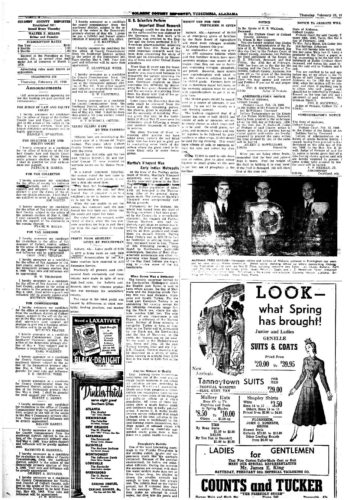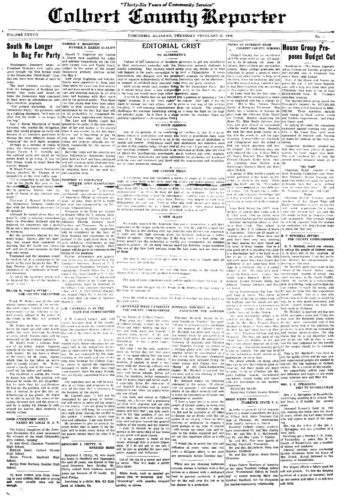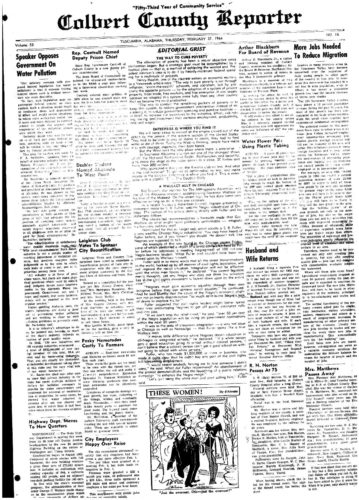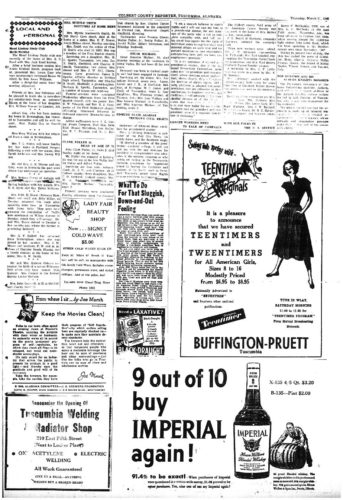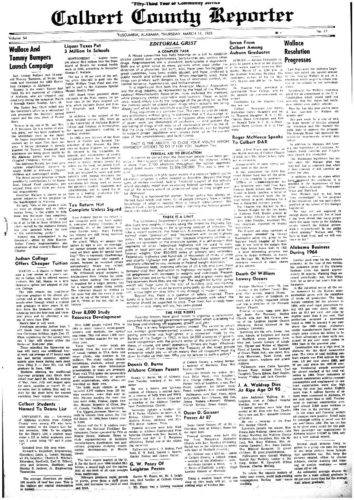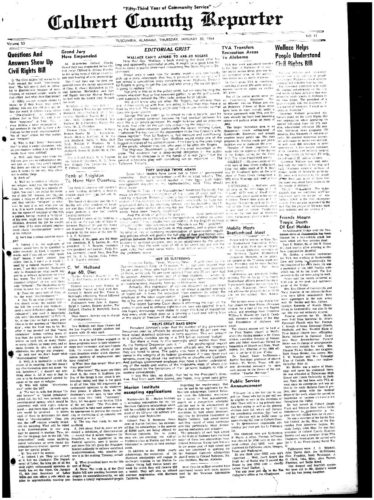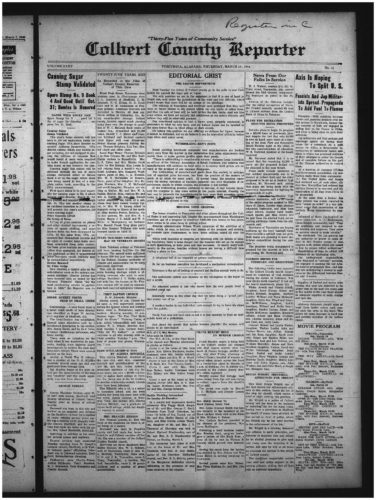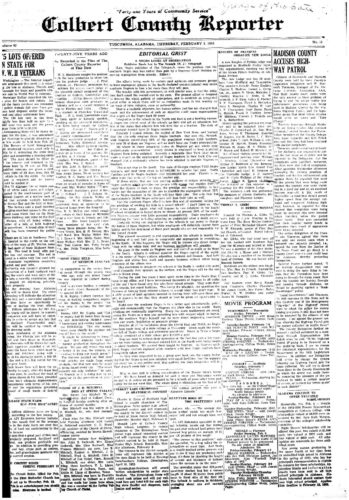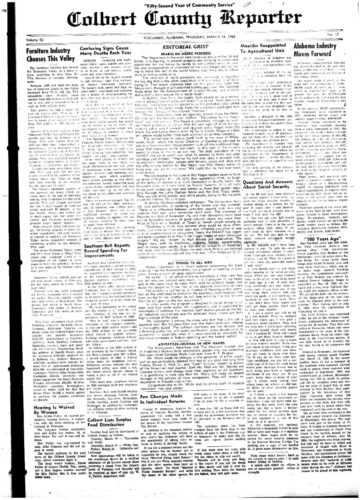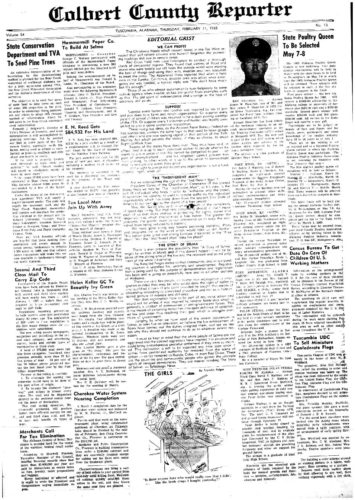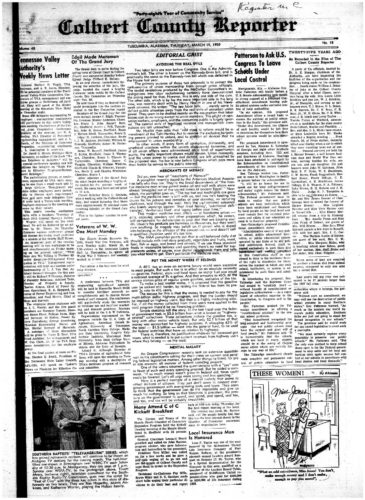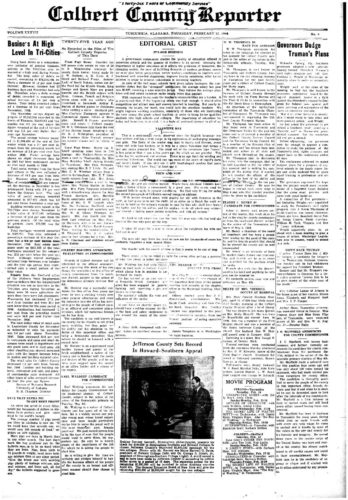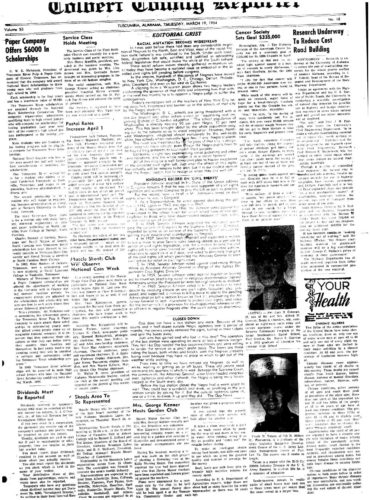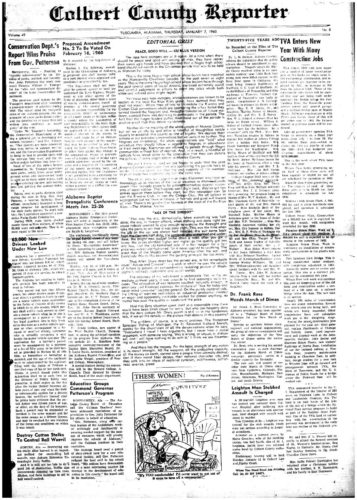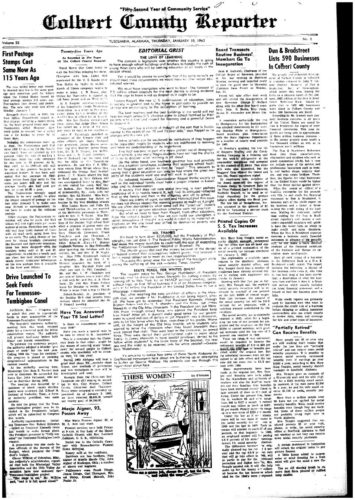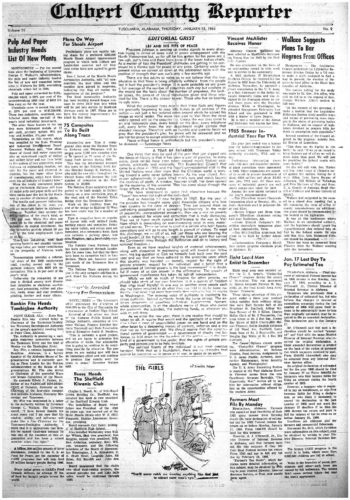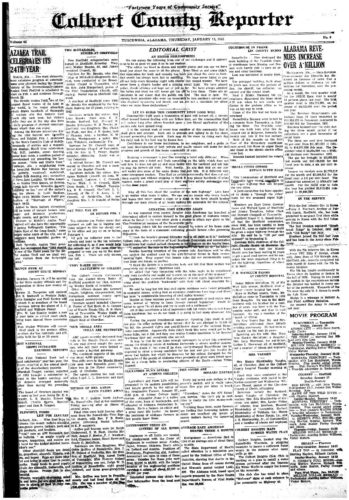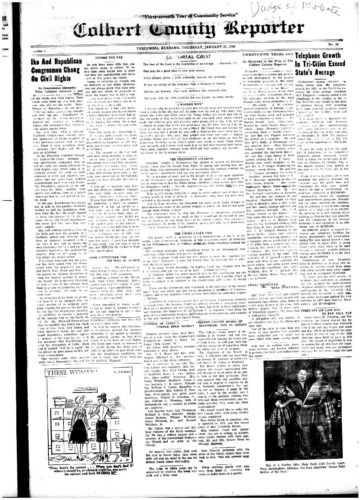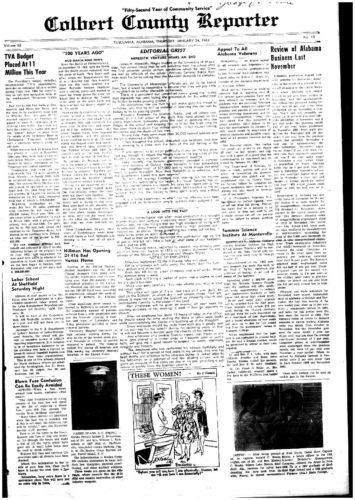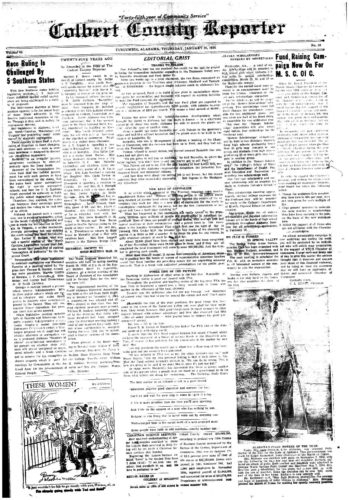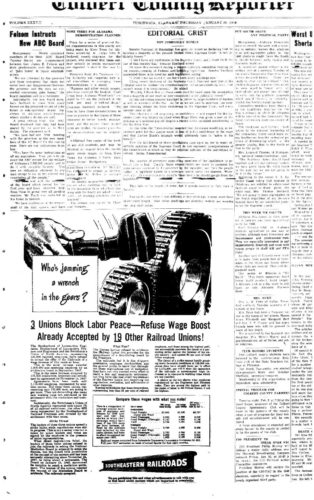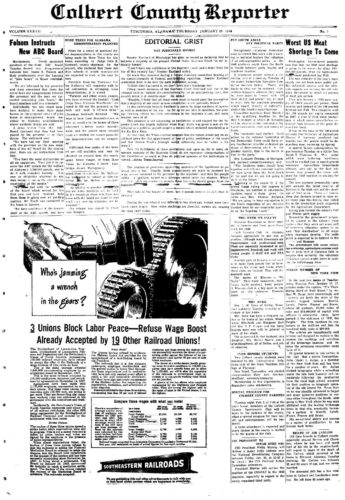February 25, 1965
Negro Claims Rape By Two Farmers
February 26, 1948
Describes that an investigation was being conducted after a Black woman named Mamie Peterson filed charges of rape against two white men.
South No Longer In Bag For Party
February 26, 1948
Describes the disputes between southern governors and the national Democratic party as President Truman pursued a civil rights program and the impact those disputes could have on elections.
A Wallace Ally in Chicago
February 27, 1964
Describes that Governor Wallace went on a tour of the Midwest and explains that he agreed with a Black, Chicago man named S.B Fuller who exhibited his views that civil rights protests were unproductive and that racial justice would not be acquired through integration.
Edmund Blair Against Truman’s Civil Rights
March 11, 1948
Conveys a statement from a Democratic candidate for the presidential elector named Edmund Blair who explains that he will not consider any candidates for president or vice-president who endorse civil rights legislation.
Wallace Resolution Progresses
March 11, 1965
Describes the resolution suggested by Governor Wallace to enable states to choose whether or not to integrate their schools and explains that other southern states began to approve the measure.
Wallace Helps People Understand Civil Rights Bill
January 30, 1964
Explains that Governor Wallace provided his interpretations of the Civil Rights Bill on public television and that he also conferred with leaders in other states as they presented their conclusions on the legislation.
Frank Murphy Held On Murder Charge
March 14, 1946
Briefly explains that a Black man named Frank Murphy was being charged with first degree murder after the death of a Black man named Nelson Scruggs.
Editorial Grist: A Negro Looks At Segregation
February 5, 1953
Describes that people within the Black community do not see desegregation as the proper way to improve race relations and create equality because the integration of schools could cause many Black teachers in the south to be without jobs and to lose their salaries.
Editorial Grist: Brakes On Negro Progress
March 14, 1963
Defends the use of minstrel images and criticizes organizations such as the NAACP who speak out against racial discrimination through racial portrayals, such as those of a “mammy” figure.
Editorial Grist: The Story of Selma
February 11, 1965
Depicts a belief that the King-led fight for the ballot in Selma was an act of resistance that compares to communism and that those working within that cause were the aggressors and oppressors.
Patterson to Ask U.S. Congress To Leave Schools Under Local Control
March 19, 1959
Describes the efforts of Governor Patterson and Senator Talmadge to create an amendment that would allow states to decide whether or not to integrate their schools.
Governors Dodge Truman’s Plans
February 12, 1948
Describes the efforts of multiple southern governors, especially Mississippi Governor Wright to avoid implementing Truman’s civil rights program by creating and maintaining facilities that were separate but equal.
Editorial Grist: Racial Agitation Becomes Widespread
March 19, 1964
Conveys the belief that the migration of Black Americans caused problems for white Americans in those areas, that the effort to integrate schools was unfounded, and that Black leaders within the civil rights movement were uninformed.
Editorial Grist: Peace, Good Will – Ku Klux Version
January 7, 1960
Describes that the Ku Klux Klan intimidated a Black high school band so that they would not perform in the Christmas parade and explains the anger within factions of the community resulting from the Ku Klux Klan’s power over organizations.
Editorial Grist: Brute Force, For Whites Only?
January 10, 1963
Questions the right for Black student James Meredith to leave Ole Miss to attend an NAACP meeting and poses that white students are facing discrimination.
Wallace Suggests Plans To Bar Negroes From Offices
January 13, 1966
Depicts the efforts of Governor Wallace and the Legislative Council to keep Black Alabamians out of government office and explains the vote to create a study to ensure that Black Alabamians are not elected.
Editorial Grist: Gyrating John Gyrates Again
January 15, 1953
Describes that Senator John Sparkman made differing promises in regard to restricting and expanding civil rights during his multiple campaigns and explains that voters will recognize his inconsistencies.
Ike And Republican Congressmen Chang (typo) On Civil Rights
January 23, 1958
Describes the belief that Republican President Eisenhower had become reluctant in pursuing civil rights legislation and had silenced himself as a result of losing the Black vote to his Democratic opponent.
Editorial Grist: Meredith Venture Nears An End
January 24, 1963
Explains the efforts to restrict James Meredith from attending Ole Miss and presents the notion that Meredith was a lowly student and that the excessive funds utilized for the integration of the university were a waste.
Race Ruling Is Challenged By 5 Southern States
January 26, 1956
Describes the efforts of Alabama, Georgia, South Carolina, Mississippi, and Virginia in their opposition of civil rights legislation by declaring their rights as sovereign states. Also explains that the states plan to implement incentives to maintain segregation and punishments for those who support organizations such as the NAACP.
Editorial Grist: Not Judicially Honest
January 29, 1948
Describes that Senator Eastland of Mississippi found it unnecessary for the Supreme Court to pass an anti-lynching law and that other people within the area had grown distrusting of the Supreme Court.
Put South Above Any Political Party
January 29, 1948
Explains that Alabama Democrats conveyed to national party leaders that they were going to be more loyal to segregation, maintaining a belief that it was a southern right, than they were going to be to the party’s decisions regarding segregation as they arose on national levels.
Questions And Answers Show Up Civil Rights Bill
January 30, 1964
Contains posed questions and answers that analyze the Civil Rights Bill and the inferred definition of discrimination, and the two participants draw the conclusion that the bill is unjust and would result in tyranny.

